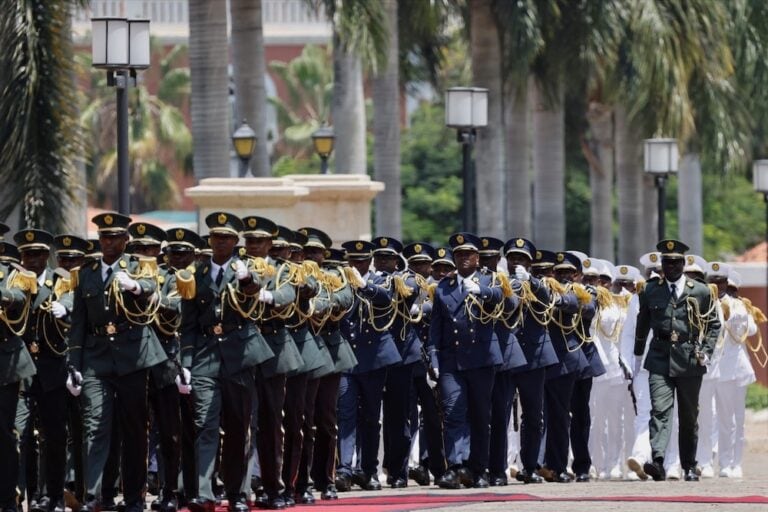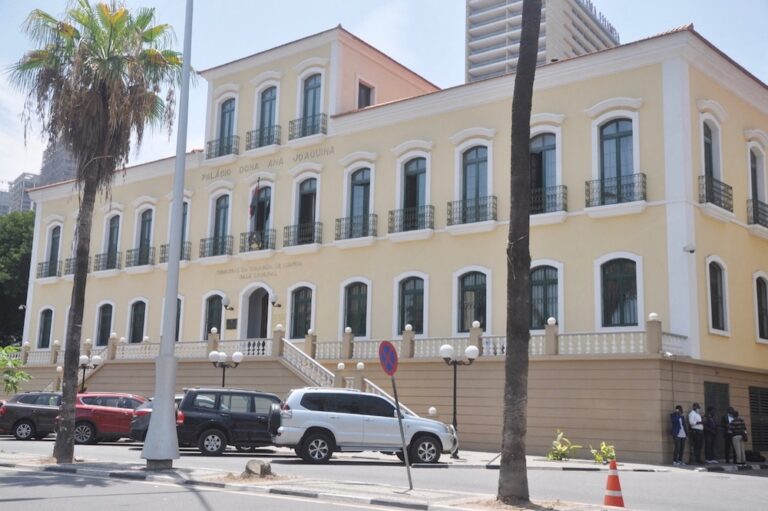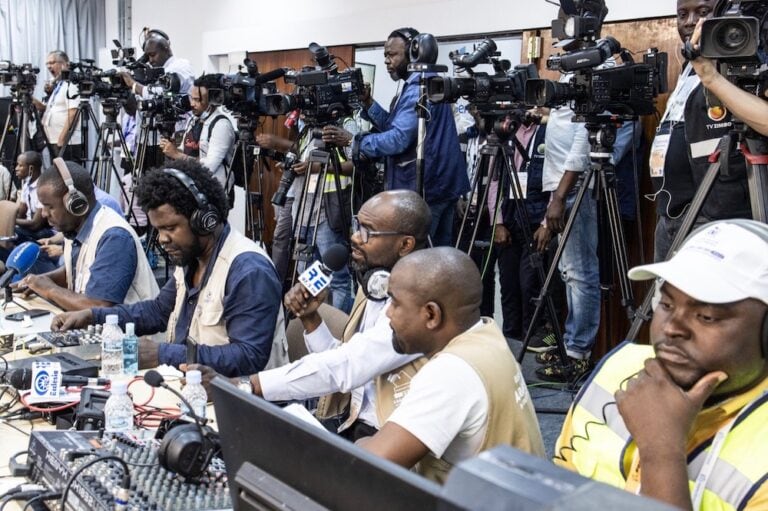(MISA/IFEX) – MISA has confirmed that detained journalist Rafael Marques has not been charged in terms of the Angolan law. This corrects previous reports which said that he had been charged with defamation of the president and with offences falling under the Law of Crimes Against the State. However, the state is currently still pursuing […]
(MISA/IFEX) – MISA has confirmed that detained journalist Rafael Marques has
not been charged in terms of the Angolan law. This corrects previous reports
which said that he had been charged with defamation of the president and
with offences falling under the Law of Crimes Against the State. However,
the state is currently still pursuing investigations with a view to charging
him, but no official charges have been brought against him. The charge of
defamation of the president remains only an accusation against him, but no
formal charge to this effect has been laid against him.
**Updates IFEX alerts on the Marques case of 2 November, 28, 22, 20, 19 and
18 October 1999; and IFEX alerts on the Neto case of 2 November, 29, 14 and
7 September 1999**
This state of affairs amplifies the illegality of his detention, which has
entered its eighteenth day and is now three days over the legal fifteen-day
period the state is allowed to detain somebody without bringing them to
trial.
MISA has further confirmed that Marques is no longer on hunger strike. His
health is said to be improving following an eight-day hunger strike. The
authorities reportedly were considering a request for Marques to see a
private medical practitioner. So far, Marques’ lawyer, family and a
representative from the United Nations High Commission for Human Rights,
Fernanda Guimaraes, have been allowed access to the detainee. Reports from
Luanda indicated that the High Court would make a decision on 3 November
1999 on a writ of harbeus corpus on behalf of Marques.
Meanwhile, MISA has also confirmed that journalist Gilberto Neto, who on 31
October was prevented from leaving the country, has no charges currently
against him. Neto was apparently prevented from leaving the country because
there was a judicial proceeding pending against him. However, MISA has
learnt that Neto is currently only under investigation stemming from his
detention and interrogation by the police’s criminal investigation
department (DNIC) on 3 September and 6 September. The DNIC at the time
questioned him over an article which appeared in “Folha 8” concerning the 9
August raid on Radio Ecclesia during which several journalists were
detained. The police reportedly are investigating possible charges under the
Law of Crimes against the State.
Background Information
Journalist Marques was arrested at his home on 16 October. Two days earlier,
on 14 October, he was accused of defaming President dos Santos for having
referred to him as a dictator in a 3 July article published in “Agora”
newspaper. The article, entitled “The Big Stick of Dictatorship”, said that
dos Santos was “responsible for the destruction of the country and the
promotion of corruption”.
For the first ten days of his detention, Marques was held incommunicado, and
neither his lawyer nor relatives were allowed access to him. On 26 October,
the attorney general (A.G.) officially refused a bail application by
Marques.
The state is apparently considering charging Marques under Angola’s
notorious Law 7/78, also known as the Law on Crimes Against State Security.
Law 7/78 violates Article 35 of the 1992 Angolan Constitution, which
guarantees the right to freedom of expression. However, the absence of a
functioning Constitutional Court in Angola means that Law 7/78 cannot be
challenged at this time. The charge against Marques carries a two to eight
year prison sentence.
In an address by Angolan lawyer Maria Pereira to a Media Lawyers Conference
in Windhoek in August this year, Pereira pointed out that in terms of the
Press Law, defamation of the president was a criminal offence. The law
further gave no or very weak options of defence for a journalist accused of
defaming the president. According to Pereira, “Once the president claims
defamation, it is accepted that the facts have been proven.” As a result,
the only type of defence a journalist can put forward when faced with this
charge, is to prove that s/he was not the author of the article. This
situation exists only in the case of a claim of defamation against the
president of the republic, a foreign head of state or a representative of a
foreign head of state.
Recommended Action
Send appeals to the president:
his
immediate release either unconditionally or on bail
the fifteen-day deadline which allows the state to legally detain someone
without bringing them to trial has passed
complied with and that the rights of the detainee are upheld with respect to
Marques
that
an integral part of democracy is that those who hold office in government
and who are responsible for public administration must always be open to
criticism
available
to counter alleged defamation such as media retraction, media statements,
and other options involving the right of reply
Appeals To
Hon Jose Eduardo dos Santos
President of the People’s Republic of Angola
Fax: +244 2 392 733 / 391 476 / 331 898
Please copy appeals to the source if possible.


